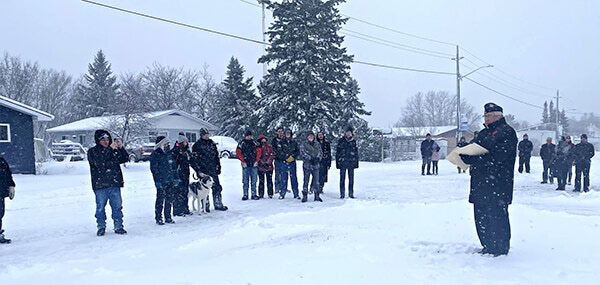Tikinagan begins work on Niigaanshkaawin
Mike Lawrence - Staff Writer
A new proposal presented by Tikinagan Executive Director Thelma Morris at the Tikinagan Child and Family Services Annual Chiefs Assembly hopes to give First Nations more control over how child welfare practices are enacted to better meet the diverse needs of individual communities. The one-day virtual assembly was host to more than 30 First Nation delegates and guests on Oct 6.
The program, called Niigaanshkaawin, which means “walking ahead”, or “first to walk ahead”, grew out of the passing of Bill C-92, titled “An Act Respecting First Nations, Inuit and Métis Children, Youth and Families”. This bill will transition Tikinagan’s role in some communities from a position of child welfare leadership to a more supportive role in developing and enacting their own child welfare laws that align with their community’s culture and history. During the Assembly a resolution was passed to form a new Chiefs Committee. This committee will consult with community members and leaders to determine the specific role communities want the agency to fill. These consultations will further allow Tikinagan to offer support services tailored to each of their client communities needs. As Morris explained in her annual report message to the assembly, “I want Tikinagan to be seen as an ally or helper with resources and support. I am open to listening and hearing from families and communities about how we can help them become better, stronger, and healthier. By working together, we can improve the lives of our families and communities.”
In his address to the assembly Nishnawbe Aski Nation (NAN) Deputy Grand Chief Bobby Narcisse expressed his support of the work Tikinagan does, stating, “We are here to support our families in regards to child welfare. We encourage our First Nation communities to work with Tikinagan to ensure we maximize the resources at our community level.” NAN Deputy Grand Chief Anna Betty Achneepineskum also expressed support for Tikinagan and the work the organization does, stating, “I continue to see families that need Tikinagan and others to make sure they have homes, medical and other resources. Thanks to Tikinagan staff and other resources to support families and keep them safe.”
The proposal has been well received by the communities that Tikinagan works with. As Tikinagan’s Communications Coordinator Marlene Green, explains, “The response has been positive and many of our First Nations are interested in moving forward with the development of their own laws. The Tikinagan Chiefs Committee is excited to be moving forward with this project.”
Morris added, “We are excited to begin this work together with our First Nations in the spirit of Mamow Obiki-ahwahsoowin, our service model, which means ‘everyone working together to raise our children.’ These changes mean listening to our communities, who continue to lead, and do the work in a way our people want it done.”


